#Learning to read
Explore tagged Tumblr posts
Text
We’re all going to have to start being a lot more compassionate and a lot less ableist towards reading if we’re going to actually address the growing problem of kids in school who weren’t really taught to read. Lotta people talk about how there’s no literacy anymore as if it’s the kids’ fault. It’s not. And we need to start addressing it from a place of kindness, not ridicule.
96 notes
·
View notes
Text
Adventures in Librarian-ing
One of the Grade 1s picked up a Bluey book to try to read and the poor kid looked at the very first word (mum) and was like "What does THAT mean????" so I had to explain that the word was "mom" but spelled with a U because in Australia they say the word differently than in Canada.
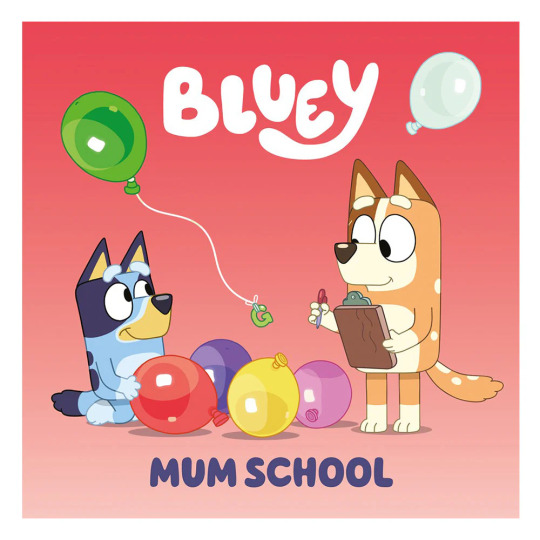
#school librarian#libraries#librarylife#libraryland#school libraries#the real life of me#canada#elementary school#adventures in librarian ing#little kids#learning to read#reading#bluey#english language#english#english langblr#langblr#languages
11 notes
·
View notes
Text
A long time ago, maybe a decade ago at this point, I looked up "how to learn to read in a language." The suggestions I ended up finding, I ended up shaping a lot of my future study plans off of - at least as a beginner.
These tips boiled down to:
Read a Grammar Guide Summary to have a generalized overview of what grammar you will see, what it means, and what grammar points you may need to look up again when reading to learn more about. (I always read these through, in a few weeks, and did not memorize. Then referenced them again when reading if I needed to figure out a particular grammar point, or found a more in depth grammar reference to use to look up stuff in depth when reading).
Look up a pronunciation guide, either a website with audio or youtube videos with audio, and listen through. (This also took a few weeks, not memorizing just going through, to get an idea of sounds in the language and things I may want to look up again later. This is also useful for making sure your mental reading 'voice' for the language is something in the range of the actual language's sounds. I neglected doing this for French until 2 years in, and then I had to do damage control and look up a bunch of pronunciation guides and listening materials to make my mental reading 'voice' something closer to actual French)
Study ~3000 common words, in sentence examples if possible, with audio if possible. (I studied anywhere from 1000 words for French in a word list with sentences I read online, to 3000 words for Japanese in memrise/anki, and the article I read with the highest suggestion was to learn the most ~9000 common words to be able to read any novel. Like with the grammar guide summary, I'd read through these words and initially 'cram study' 1000 at a time - prioritizing new study and ignoring reviews if I didn't have time, then go practice reading for a couple months to review and understand those words better in the context of what I was reading, then 'cram study' another 1000 words and instead of doing reviews I'd go back to reading, then cram study another X words if I found myself needing to 'vaguely recognize' a lot of words to understand the next thing I was interested in reading. Eventually I reached a point where bulk studying words was not useful for me, and at that point I just looked up unknown words as I read that I wanted to learn - and kept looking them up until I remembered them. And that's currently what I still do.)
Look up Graded Readers, and start reading. (I intensively read - looked up words I didn't know, or forgot the meaning of. And I extensively read - forces you to understand what you can remember, and improves reading speed).
At the point one can read some things in the language, just keep reading. (I would continue intensively reading - looking up unknown words and grammar points - if I ever wanted to learn a bunch of words 'faster' or tackle a reading material that was significantly harder than what I could handle, or I extensively read - no looking things up - stuff I could understand the main idea of. Eventually, what I could extensively read increased, and it keeps increasing as long as I keep reading things.)
It just so happens that if you follow most beginner textbooks in a class they also teach ~2000-3000 words, and many basic grammar points. Or if you use Assimil or Teach Yourself books. Or an anki deck full of common words in sentences. Or Glossika. Or The Nature Method textbooks. Sometimes beginner materials won't teach you ALL the grammar points you might want to get familiar with, so you can just look up 'grammar guide summary' online or find a good reference book or website and read for an overview on the rest of the grammar for that language. Sometimes a beginner textbook teaches a miniscule amount of words (rare, but it happens) and looking up a word list online, or an anki deck, will provide you with enough common words to start trying to read. My point with all this is: it's fairly easy to either find these resources free, or take a beginner class/material and study the information in it, needed to give you the foundation to begin reading. Once you have a 'vague familiarity' with some words and grammar, you can just start reading. You can just read, and look up words again and grammar again over and over until you remember it, and it will work. You can start reading Graded Readers as early as you're ready to try (Or even harder stuff, although the effort will be less intense if you start with easier reading material lol).
I started trying to read French within a few months of starting a French Beginner 1 class in college, because I could find a common words list and grammar guide summary online and I'd finished reading them, and wanted to try reading the news and wikipedia and some Graded Reader novels I'd found from the thrift store. So I started, and looked up words and grammar points when they were important to understanding the main idea, and I kept looking things up and kept reading. And in 6 months I could read a lot more. In 1 year I could read a lot more, and was only extensively reading at that point. I did pretty much the same strategy to learn to read Chinese (and Heavenlypath.notion.site's Comprehensive Reading Guide is quite similar to what I did, and would work well, and the same strategies could be applied to learning to read any language - I often link it because it's clearer than anything I can write, and it's a good 'learn to read' guide, like the ones I relied on so much when I was trying to figure out how to learn to read French).
#reading#rant#article#reading skills#how to learn to read a language#study plan#how to read in a language#learning to read
8 notes
·
View notes
Text
HAAII erhghmm uhmm if anyone hasss any like tipsss on how to teach sssomeone to read ... we DESSSPERATELY need it ty ty ty
yeah uhmm. ananasss can't read. like at all. anytime he "typesss" it'sss ssssomeone elssse transsscribing . i don't even know if he knowsss what sssound lettersss make. uh yeah help isss much appreciated 😭 /nf
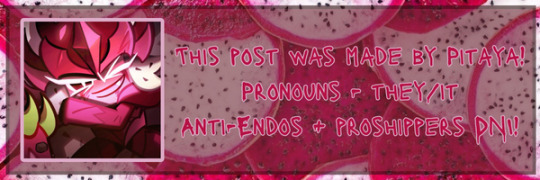
[ID: A headmate banner reading "This post was made by Pitaya! Pronouns - they/it. Anti-endos + proshippers DNI!" There is a picture of Pitaya Dragon Cookie to the left, and the background is an image of dragonfruit. End ID]
#the dragons' roars#the red dragon speaks#cookie run fictive#crk fictive#crob fictive#fictive#pitaya dragon cookie fictive#ananas dragon cookie fictive#uhm#learning to read#I GUESSS?????
6 notes
·
View notes
Text

In 1938, a 101-year-old former slave named Carrie Kirk was enrolled in a literacy course in Cleveland, Ohio.
#slavery#civil rights#american history#born slave#101 years#literacy#learning to read#never too late#being human#humanity#ex slave#usa#the way we were
4 notes
·
View notes
Text

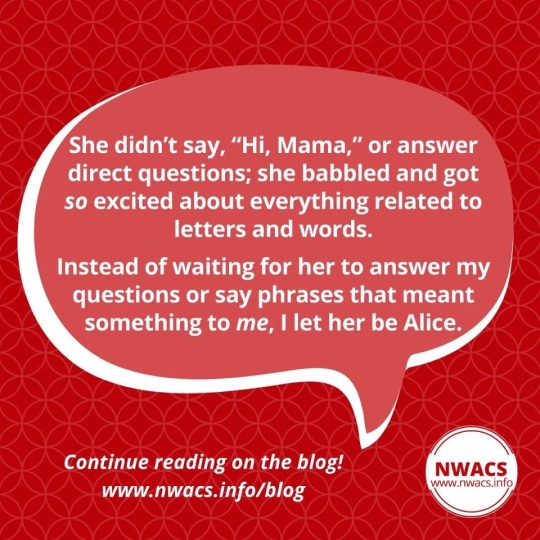
#NWACS#full time aac user#aac user#reading#learning to read#nonverbal#actually nonverbal#nonverbal communication
15 notes
·
View notes
Text
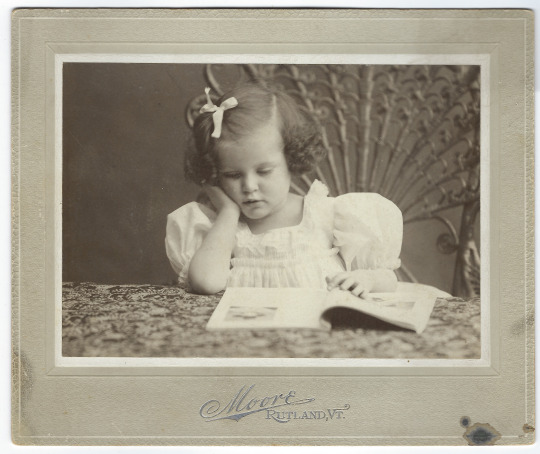
Fundamental. Mounted photo of a pretty little girl sitting in a rattan chair reading a picture book. Moore studio, Rutland, Vt. https://markonpark.etsy.com/listing/1496344947
4 notes
·
View notes
Text
I fundamentally agree with you but I wish to share a different angle on that fundamental agreement.
I am also the autism, and raised by an English Lit teacher (and an engineer whose draft reports were the household scrap paper bin, so I had good examples of both literary and technical writing available from very young).
No I don't know exactly what a character's face is doing when the author says 'their eyes darkened'. I also don't, like, care, if I'm reading for pleasure. Like I recognize the emotional state that's being conveyed by the phrase, which is the core information that actually matters here, and when I'm reading I don't have to interpret human facial expressions in real time to get that information, because it's like. Right there. What is this character feeling right now. For bonus points, how does this affect what they're going to do or say next?
I've been told it's really easy to see when I'm reading Star Wars stories specifically (and sometimes which one I'm reading) because I 'try on' the characters' faces with my own face wayyyy more than with other genres, and that's because the canon novelizations go really hard on facial expressions (and Force aura which is fundamentally just a different kind of facial expression and one real people don't actually have, except when they do) because they're very explicitly referring back to film media, where facial expression is a major way of conveying a lot of emotional information at once. I really like the RotS novelization because it's very clearly timestampable to a specific film and I can go check 'what that figure of speech looks like on a human face'.
Hello yes I learned to read human emotion largely from Star Wars this explains a lot about me actually.
I can't remember where I was going with this. Wide range of human experience good. Understanding that not everyone is going to approach your writing in the same way also good.
I’m so sorry but in the nicest way possible do yall actually read books or just read words??? Cause I’ve been seeing that trend of people not understanding how “snarled” and “eyes darkened” and “eyes softened” etc. was used in a book and like…
Genuinely, do yall just not have imagination?? Or not understand figurative language??? Also eyes do literally darken and soften have you not lived a life??? How do you read with no imagination? Is this how you get through so many books in one month - you simply don’t take the time the understand the words as they are read?
#star wars#autism#learning to read#the differences between how peoples brains work is so fascinating to me
106K notes
·
View notes
Text
i dont consider myself a 'fashion guru' by any means but one thing i will say is guys you dont need to know the specific brand an item you like is - you need to know what the item is called. very rarely does a brand matter, but knowing that pair of pants is called 'cargo' vs 'boot cut' or the names of dress styles is going to help you find clothes you like WAAAYYYY faster than brand shopping
#also theres no one good place to learn this generally ive picked up yhe knowledge by asking questions#or reading through catalogues. paying attention to the words used to describe clothing styles i like
187K notes
·
View notes
Text
i love you vaccines i love you research i love you reading the book instead of having chatgpt summarize it i love you critically thinking rather than reacting to a headline i love you investigating the source material i love you science i love you math even though you are personally my enemy (math/yn slowburn) i love you writing even though you try to stab me a lot i love you Experts in Your Field i love you Using The Brain
#i don't read fanfic so idk what my math x op ship name should be#.... i love u math.... despite our differences.... :/ u work i guess#not like for ME. never for ME. but like for other people you seem pretty reliable.#... SOMEONE (me) has a LEARNING DISABILITY#edit: thank u to the anon who suggested i refer to math as my rival. u are so right.... not enemies... no...#*locks hands with math* bonded........ 2gether.... 2 sides of da coin... both under threat of AI... i luv u math#(<- still clearly never understands whenever math speaks bc literally what is going on over there. the fuck is a polynomial)
36K notes
·
View notes
Text
Lesson 4: A fat hen
Letter Sounds: f b x u Words: hen fat rat box big run from can Lesson: A fat hen. A big rat. The fat hen is on the box. The rat ran from the box. Can the hen run? MCGUFFEY’S First ECLECTIC READER
0 notes
Text
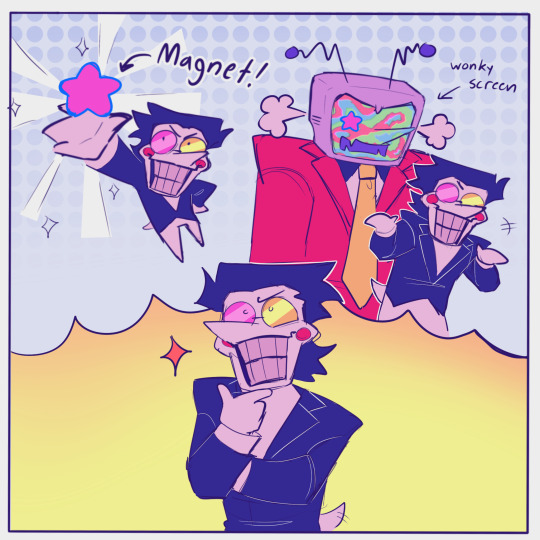
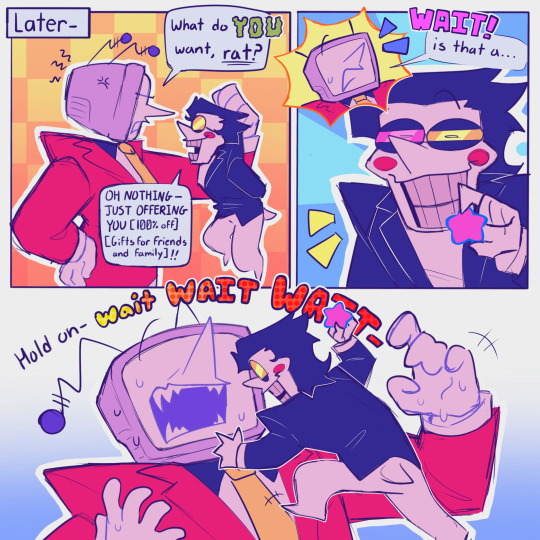
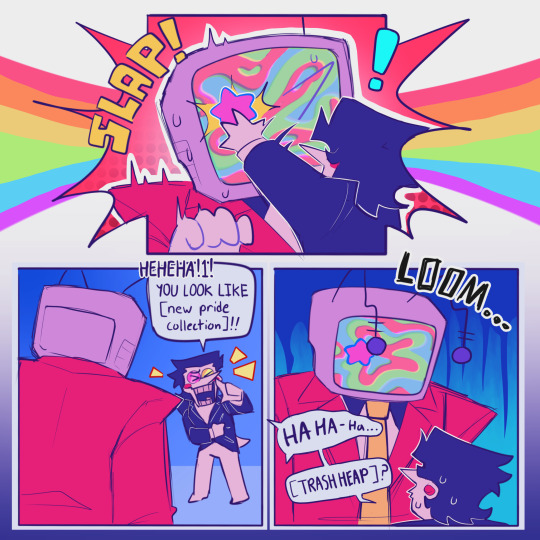
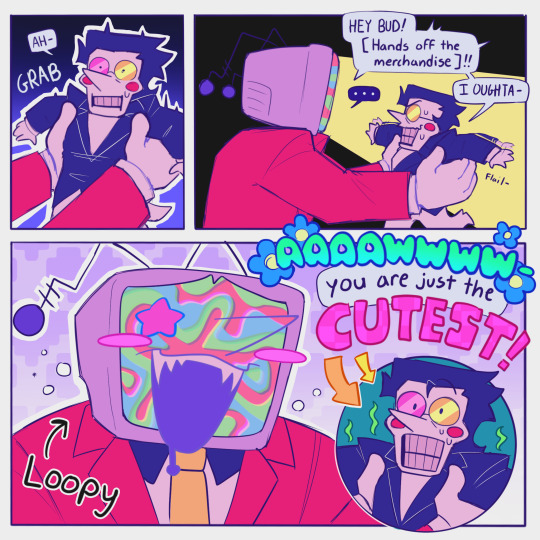

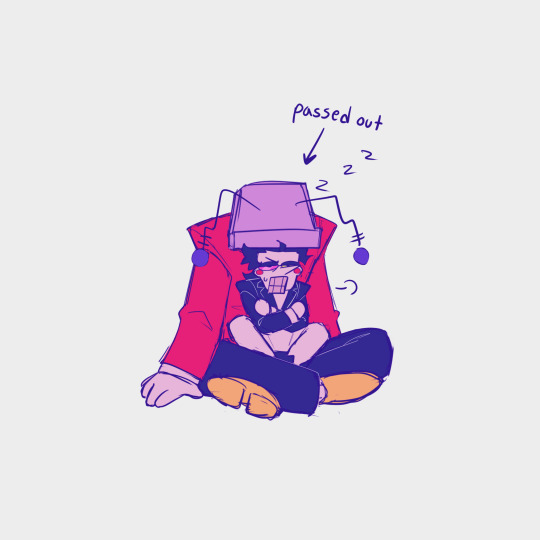
Saw people talking about how crt screens get wonky when you put magnets against them and thought that was super fun! Tenna I love putting you in situations
#this is my first time making a colored comic of this size so I’m sorry if it’s difficult to read or if there’s any mistakes#this was a very fun learning experience though!#if you have any tips PLEASEEE feel free to tell me! I’d love to get better at making comics <3#deltarune#deltarune chapter 3#deltarune fanart#deltarune tenna#tenna deltarune#mr tenna#spamtenna#spamton#spamton g spamton#this is very ooc but I don’t even care they r like Barbie dolls to me
16K notes
·
View notes
Text
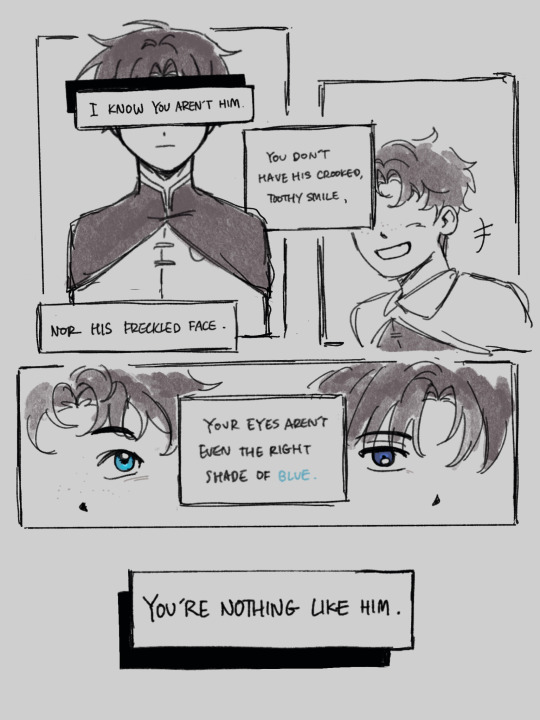
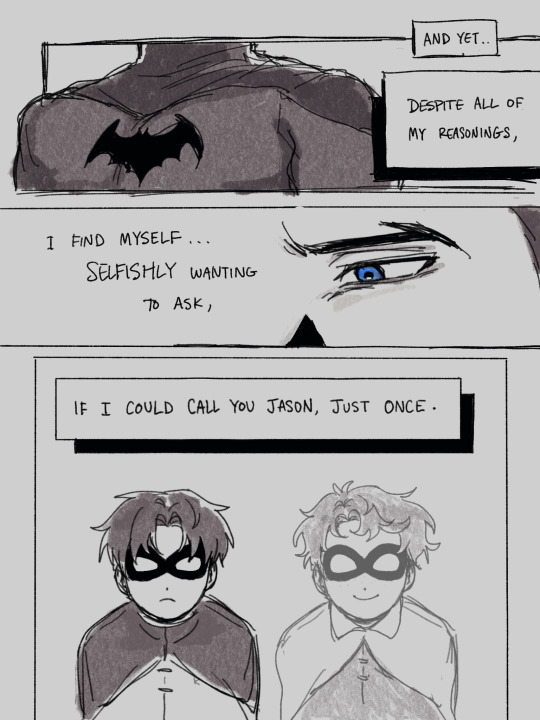
selfishly, just once.
#bruce wayne#batman#tim drake#timothy drake#robin#dc robin#robin ii#robin iii#jason todd#jaybin#timbin#dc#dc comics#dc fanart#i don’t think this is 100% accurate to bruce’s character btw#i just really wanted to draw angst#and also vaguely inspired by ORV with hsy and lhh in the side stories epilogue#don’t come for me if this is OOC i am aware#a grieving father knows nothing of comfort#my art#also too lazy to write the chinese version rn#i will do it later for twitter though#it’s that one comic scene where tim says when will you learn i’m not jason todd#i forgot the actual quote but you get it if you’ve read it
15K notes
·
View notes
Text

0 notes
Text
I've only been a constant reader for just over a year, so I can't confidently tell what's 'transgressive' and what's 'exploitative'. Can exploitation ever be fun and harmless? Do I always have to care? Excited to find out...
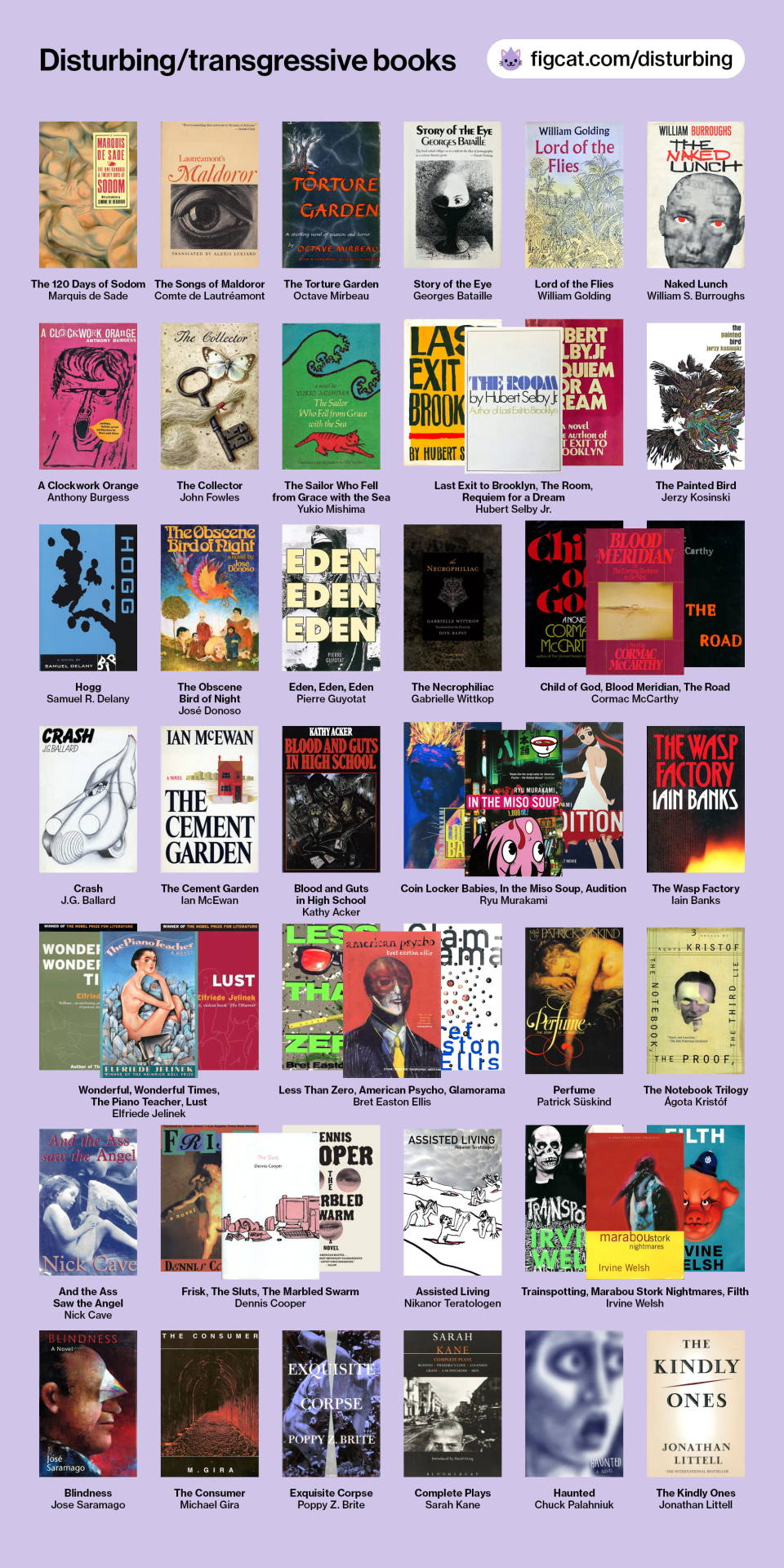
Dark, disturbing, and transgressive fiction
A list of books that deal with shocking, depraved, or taboo subjects. Many of them contain themes of violence, sexual perversion, or extreme psychological distress, so reader discretion is advised. Please proceed with caution, be mindful of your own limits, and maintain a well-balanced reading diet. This is a selection from my list of 160 books in this category that I published on my website, complete with links to Goodreads and Wikipedia for each title.
#currently reading The Haunting of Hill House#Another Dennis Cooper novel soon I'm sure#transgressive literature#learning to read#literature
288 notes
·
View notes